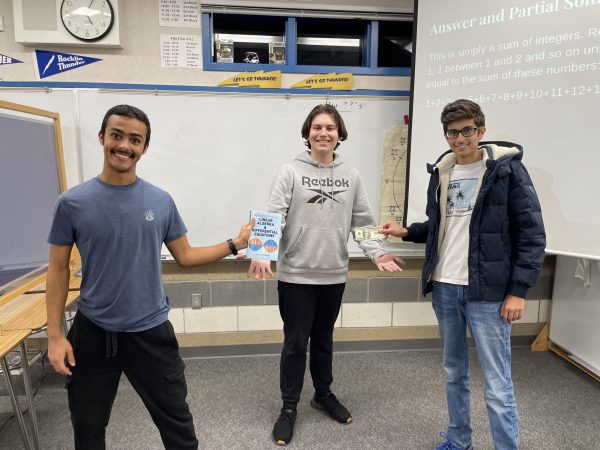Is NASA losing its star power?
With the Space Shuttle program decommissioned, NASA has fallen into a time when big news does not seem to be happening for them. Missions like the Curiosity rover on Mars and the Juno spacecraft have still made news(albeit Curiosity made its new by “accidentally” drawing a penis in the dirt of Mars), but nothing world changing has really been taking place.
Other nations with space programs have stepped up with their own attempts at gaining a foothold on the final frontier, but these are mostly things that have happened before. The private industry is also working hard at getting things rolling, SpaceX and Orbital Sciences have both had successful missions. This however, is similar to the foreign space programs in that the only thing new about these missions is the logo on the side of the craft.
Of course, these are crucial and amazing steps of progress, but to get people interested enough to fund a space program, the space program needs to make the people care. I believe that if NASA is going to get the funding it deserves, it will do it by sending humans beyond the grips of Earth’s gravity.
While the Moon would produce valuable research, it would not excite the people as much as other targets. I believe that if NASA is to be successful, they need to send humans where they have never gone before.
“People will only get excited if [space programs] send someone somewhere new, and they found something like life on other planets.” says RHS student Megan Sunde.
However, as with pretty much everything, exploration requires a very careful balance. The unmanned missions are vital to providing information that make manned missions possible.
Somehow, NASA needs to find a balance between blowing minds and learning about what blows minds.
As always, new technology will greatly help this process. Someone needs to figure out how to get humans far away faster, or able to travel far for a long time with no ill effects. If this step is to be put into practice then those lucky ducks that can get to somewhere epic will need somewhere epic to get to. Where should we go? Mars? Europa? Should we start close and work outwards, or go straight for the money on whatever planet or moon that looks helpful?
Though NASA is who I would prefer to be making headlines with their incredibly achievements and discoveries that blow away the sum of past human accomplishments, I think there are a few different programs that will making these headlines. With many different programs now underway, I hope we will see breakthroughs in many different fields.
The private industry will obviously deal with making space profitable. Tourism, mineral mining, new technology, and whatever else the future brings will probably be a major concern for the growing private industry. I look forward to the day where I can visit the Star Wars themed amusement park that is obviously the best thing anyone could ever do in space, and it would probably be a private company to do it.
With the infinite nature of space, there is bound to be some incredible element that humans have never seen before that is lighter than a feather, stronger than steel, cures cancer, solves world hunger, and is hiding in massive, easily accessible, reserves. That seems to be the direction that the private industry is headed, and that will greatly benefit us back on Earth as well as the continuation of space exploration.
Along the same lines of these magical treasures is an even more magical thing: life. Many space programs I believe will devote themselves to the search for life beyond Earth. This would probably the least interesting endeavour for the public. Until, that is, life is found. Signs of life is one thing, proof of life will cause a stir, but I don’t think the public will be truly impressed until someone brings home a magical space otter from a moon of Saturn.
Hopefully the search for life is completed in that way, discovering a cute little creature, instead of some sort of massive alien invasion aimed at enslaving the human race. Either way, the end of the search will be the part that makes the news, and I think government space programs will be leading this charge.
Another more recent development in space ventures comes from the need to protect the world. Who else is more qualified to protect the world(besides superheroes) than the United Nations? They have taken the first step to lead the charge of asteroid defense. While technically this is still government space programs, the delegation of duties should hopefully limit impact on other areas of operation while providing adequate resources to advance this field of technology.
Protecting the Earth is generally a pretty good idea, so the UN is putting together a program to do just that. Hopefully sooner than needed, Earth will deploy an army of little robots that will be sent to dangerous asteroids and use their collective force to push the asteroid out of harm’s way.
There are of course many other directions for space programs to head, and many more than that that we can’t even begin to imagine yet. Whether it’s wrapping the Moon in solar panels, building a slingshot that launches things into orbit, hot air balloons that use antimatter to travel through space, or a real-life replica Death Star, the next coolest thing ever could come from an unlikely place(it is worth noting that all of those ideas are completely legitimate and while the Death Star plan never got approved, the other three are being planned and funded).
These ideas probably sound just as crazy as visiting the Moon sounded 70 years ago, and yes they are insane, but they might just work. Not just work, but work so well as to change everything.
With all of these paths to consider, it seems like NASA’s budget cuts could come at no worse a time. Getting into space was a big accomplishment, stepping down off our porch to visit the moon was bigger, but it seems like most people are content to just go back inside our house and occasionally look out the window.
Whether it’s a shiny new resource to play with appearing on our front lawn, seeing someone new in your neighborhood, or a giant asteroid smashing into our house and forcing us out, something has to get the public excited about space.
















